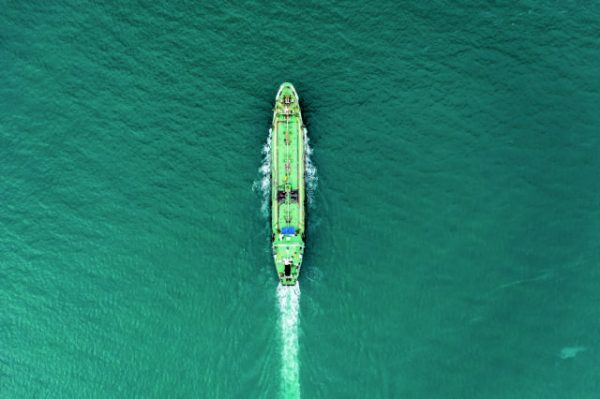
No political agreement was reached at today’s Council of Energy Ministers of the EU. on the issue of the ceiling on the TTF price of natural gas, according to authoritative sources speaking to OT. According to these sources there are requests from countries to convene a new extraordinary meeting on December 13, two days before the Summit of European leaders.
The block of countries in favor of setting a lower ceiling price than that of the Commission, led by Greece, insists on the position of a maximum price of 150 to 200 euros/MWh, while the Commission has proposed 275 euros/MWh.
The 27 energy ministers of the EU are expected to meet again on December 13, buying time to reach a compromise solution with the bloc of countries led by Germany, which opposes imposing a cap immediately and also opposes a lower price.
Greek Minister is adamant
Earlier, the Minister of Environment and Energy Kostas Skrekas appeared adamant as to the bar that should be set for the imposition of a ceiling on the TTF price of natural gas.
Coming to the extraordinary council of energy ministers of the EU, the Greek minister rejected the Commission’s proposal with his statements: “A price of 275 euros/MWh is not a ceiling. Households and businesses are in a state of shock from high energy prices and something needs to be done. We cannot stand by and do nothing. We are wasting time and we need to protect European citizens,” he said.
He added that “we need a more realistic mechanism that prevents prices like those of last August. We need a different mechanism to help us avoid high prices. Europe buys more expensive gas than any other part of the planet.”
Asked about the reactions of countries in Germany’s bloc and concerns about Europe’s security of supply to the imposition of a cap, Mr Skrekas commented: “These high gas prices are not justified based on market fundamentals. Gas storage is more than 95% full and LNG carriers in Europe’s seas are numerous and ready to deliver gas. There are no vacancies in terminals. These high prices are not justified.”
The position of 15 ountries
A foretaste of the climate prevailing in Brussels was the meeting – earlier today – of the ministers of the 15 EU member states, who have signed the joint letter requesting the imposition of a ceiling on the price of natural gas.
European sources, cited by Greek state news agency APE-MPE, state that the “15” have confirmed their intention to form a common front. They even emphasized that they will ask the European Commission for a new proposal with significant improvements, so that all three regulations can be approved at the next extraordinary council on December 11 or 13.
The Commission’s proposal
The Commission, through the new proposal it submitted, recommends the imposition of a ceiling on the price of natural gas from January 1, 2023, with the aim – as emphasized – of preventing a repeat of the prices observed last August.
As reported by the EU Energy Commissioner Kadri Simson, the European Commission has proposed a maximum price of natural gas of 275 euros per megawatt hour for the month ahead TTF contracts.
The Commission’s proposal, as officially published, effectively renders “the tool of imposing a maximum price on natural gas non-existent”, as energy market pundits commented to OT. And this as the price that is proposed to be predetermined, i.e. 275 euros/MWh is more than three times higher than the levels of the last months (110 to 120 euros/MWh). In simpler words, the same sources note that this specific proposal satisfies the bloc of countries backing Germany, which oppose setting a maximum price for natural gas.
What the Commission says about the disagreements caused by the natural gas plan
Arriving today, at the Council of competent ministers in Brussels, Energy Commissioner Kadri Simson clarified that the Commission submitted the proposal for the corrective mechanism based on the mandate received from the European Council, noting at the same time that (the proposal) provides a solid basis for today’s ministerial debate.
Asked how the difficulties would be overcome, Ms Simson said the Commission was ready to “facilitate” the deal, but also to help the Czech presidency so that “all concerns are addressed”.
“Many member states have concerns and that is why we are meeting. All the different positions allowed us in the end to reach an agreement on previous proposals and I have hope that this time it will be no different”, the European Commissioner pointed out. Answering a question about the reactions of the countries of the South, which talk about the 275 euro limit being too high, while they are facing tough conditions, he answered that “the European Council gave us clear instructions, that we should pay attention to possible risks and we did it. Some risks remain, but this proposal is designed to help us if we face another period like the one we faced in August. At the same time, however, we will not activate market intervention unless it is absolutely necessary.”
Kadri Simson also underscored that “we will use our forces to ensure the security of supplies and to deal with high energy prices”. She expressed hope that “member states will reach a political agreement” on issues such as the common gas market and stronger solidarity.
“Discussions have shown that there is broad support for these measures and the political agreement today will send yet another strong message of unity and determination in the face of this crisis. We have to move forward with the implementation, so there is no time to waste,” he stressed
Latest News

German Ambassador to Greece Talks Ukraine, Rise of Far Right & Tariffs at Delphi Economic Forum X
Commenting on the political developments in his country, the German Ambassador stressed that it was clear the rapid formation of a new government was imperative, as the expectations across Europe showed.

Athens to Return Confiscated License Plates Ahead of Easter Holiday
Cases involving court orders will also be excluded from this measure.

Servicers: How More Properties Could Enter the Greek Market
Buying or renting a home is out of reach for many in Greece. Servicers propose faster processes and incentives to boost property supply and ease the housing crisis.

Greek Easter 2025: Price Hikes on Lamb, Eggs & Sweets
According to the Greek Consumers’ Institute, hosting an Easter dinner for eight now costs approximately €361.95 — an increase of €11 compared to 2024.

FM Gerapetritis Calls for Unified EU Response to Global Crises at EU Council
"Europe is navigating through unprecedented crises — wars, humanitarian disasters, climate emergencies," he stated.

Holy Week Store Hours in Greece
Retail stores across Greece are now operating on extended holiday hours for Holy Week, following their Sunday opening on April 13. The move aims to accommodate consumers ahead of Easter, but merchants remain cautious amid sluggish market activity.

Green Getaway Ideas for Easter 2025 in Greece
Celebrate Easter 2025 in Greece the sustainable way with eco-farms, car-free islands, and family-friendly getaways rooted in nature and tradition.

Civil Protection Minister Details Summer Firefighting Plans at Delphi Forum
At the 10th Delphi Economic Forum, Minister of Climate Crisis and Civil Protection Yiannis Kefalogiannis discussed Greece's plans for the upcoming fire season.

How Shops and Markets Will Operate During Easter Holy Week
The Easter holiday schedule has been in effect since April 10, with retail stores open Palm Sunday, and most supermarkets also operating to meet consumer demand for Easter shopping

Why Is the French Aircraft Carrier Charles De Gaulle in Piraeus?
Docking in Piraeus after a four-month deployment in the Indo-Pacific region, the admiral of the aircraft carrier the Charles de Gaulle says, "Greece is our best partner in the Mediterranean."








































 Αριθμός Πιστοποίησης
Αριθμός Πιστοποίησης